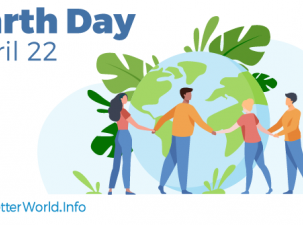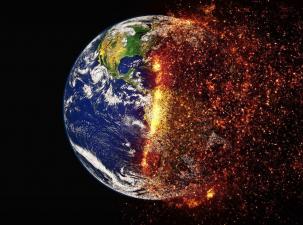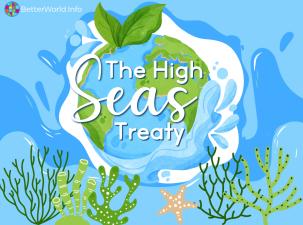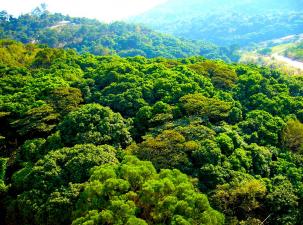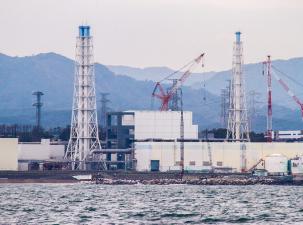Environment

➡️ ENVIRONMENT - Safeguarding Our Planet for Future Generations
Our environment encompasses everything around us. From the atmosphere above, the soil below, the water in our oceans and rivers, the air we breathe, and every living thing.
For many years, scientists have understood the enormous pressure that humans are putting on our environment. The global climate crisis and the biodiversity crisis are changing our planet faster than plants and animals can adapt.
We must shift to a more sustainable way of life, stop the cycle of endless exploitation, and respect the true value of our planet's nature.
Jump straight to our resources on the ➡️ Environment
Explore our comprehensive guides on -
-
Environmental News Sources
-
Environmental Organisations
-
The Plastics Crisis & Other Harmful Waste
-
Environmental Policies
-
The UN Climate Change Conferences (COP) and Biodiversity Summits
-
Exemplary Environmental Advocates
In the last 160 years, humans have produced 2.3 trillion tons of harmful greenhouse gas emissions. This has disrupted critical climate systems and is increasing the frequency of extreme weather events such as heatwaves, hurricanes, drought, and flooding.
Climate-driven disasters have increased by five times in the last 50 years. In 2023, the number of climate refugees reached 26 million. The number of people displaced by the climate is now larger than those forcibly moved by conflict.
Follow our essential environment Twitter lists, where you will find handpicked environmental experts, organisations, and campaigns all in one place.
German speakers should visit our partner site, Bessere Welt Info, to explore our comprehensive Umwelt category.
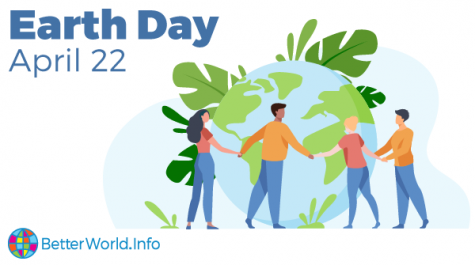
Environmental Organisations & Activism
Environmental organisations are the essential frontline in protecting, monitoring, and analysing environmental issues. They help to raise awareness of the dangers of overexploitation and expose and hold those responsible to account. Learn about top international organisations such as Greenpeace and Friends of the Earth. Also, search by country for local initiatives in our regional subcategories.
They also raise vital funds to invest in restoration projects, sustainable practices, education, clean-up operations, endangered species, at-risk habitats, air quality initiatives, improved waste management, and other important areas.
Environmental prizes such as the Earthshot Prize and Global Green Awards celebrate, honour, and support the work of inspiring organisations and individuals who, often at risk to their own lives, champion the safeguarding of our precious environment.
We highlight hardworking conservation initiatives and provide information on rewilding, the 30 by 30 initiative outlined in the UN Biodiversity Summit COP15 and the global deal for nature.
Environmental law is being used more frequently by organisations to enforce environmental protections successfully. These legal challenges are making front-page headlines and are inspiring others to stand up against environmental impunity and greenwashing from governments and corporations. Setting a positive example, many countries have now adopted legal protections and rights for nature.

Waste & Toxins Destroying our Environment
Globally, humans produce approximately 2 tonnes of waste every year, and this is expected to increase to 3.4 tons by 2050. The US is the official king of waste, not only do they produce a lot more, but they also recycle a lot less than all other developed countries.
The creation of such vast amounts of waste has led to soil contamination, excess methane release, climate change, contamination of water supplies, and all sorts of issues for animals and plants trying to survive in polluted ecosystems.
The huge quantities of plastic dumped into our oceans are eventually broken down into microplastics. They are now found literally everywhere on the planet - in the air we breathe, the water we drink, and the food we consume.
The problem is so bad that 97% of children now have microplastic debris in their bodies. The health effects are not fully understood, but what is certain is that microplastics are toxic. They have already been connected with Alzheimer's disease, allergies, cell damage, reproductive issues, and obesity.
Explore other issues such as toxic substances, pesticides and herbicides, the pollution of space, electronic waste, and planned obsolescence.
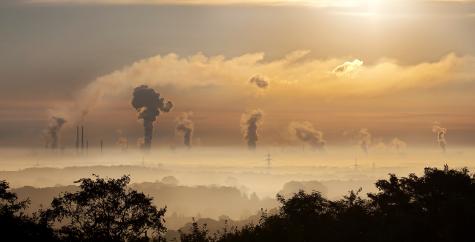
How Bad is Air Pollution?
The biggest sources of air pollution are the fossil fuel industry, transport, industry and manufacturing, urban development, and agriculture. Each releases dangerous toxins into the air, which has profound environmental implications such as cancer, asthma, heart disease, and other serious health conditions.
Air pollution is now so prevalent that 91% of the world's population breathes polluted air daily. It has become one of the planet's biggest killers. In the UK alone, 36,000 early deaths a year are directly related to polluted air.
Coal-fired power stations cause acid rain, forests to wither, crops to fail, and ecosystems to become unbalanced. Not only is the majority of air pollution invisible, but it is also incredibly costly. The World Bank estimates that the global cost of air pollution is $225 billion annually.
Explore the impact that cars, air travel, and the shipping industry have on air quality, and learn about smog, the ozone hole, airport expansions, and the true cost to humans and the natural world.
Find detailed information on low-carbon transport options such as bicycles, car-sharing initiatives, public transport, and the benefit of electric vehicles for both personal and commercial use. In the last four years, the UK has seen a 26-fold increase in electric car ownership. Many countries are investing in free or low-cost public transport options, and the infrastructure for bicycle users is improving.
Governments have started placing restrictions on diesel vehicles to meet strict air pollution targets, and many automakers have confirmed that they will stop the production of gas-powered cars by 2035. Greener and more sustainable cities are helping to filter pollution and ensure cleaner air for everyone.
Air quality forecast models predict that climate change and air pollution could risk 30 million lives annually by 2100 if left unchecked.
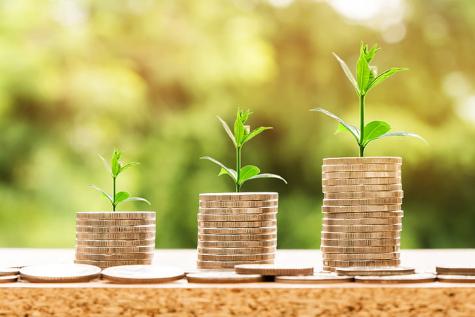
Economy and the Environment
The environment and the economy have always been closely intertwined. Our natural world provides us with a vast economic resource from tourism, extraction, energy, timber, medicine, agriculture, and more. In fact, 40% of global employment relies directly on a healthy, clean, and balanced environment.
Over-exploitation and unsustainable natural resource use have devastatingly created an environment vs economy scenario. Economic development has long been prioritised over sustainability due to the short-term financial benefits.
In recent decades, economists have begun to understand that environmental protection actually supports a healthy economy. If managed correctly, our natural world can sustain us indefinitely and act as an essential filter for waste and emissions.
The corporate world can no longer greedily reap gigantic profits without considering its impact on the environment. Emissions and sustainability regulations, air quality control, protected land, and environmental laws are being implemented around the world to protect our most precious resources.
The aim of corporate social responsibility (CSR) is for companies to consider their social and environmental impact. Playing a positive role in communities leads to greener investments, improved reputation, happier clients, and can even improve financial performance.
Explore the world of green economies, green growth, and circular economies - concepts that embrace sustainability for both the environment and financial systems. They incorporate recycling, renewable clean energies, net zero goals, equality, climate policies, waste reduction, and strong ethics into their business models.
Learn about eco-taxes and carbon pricing, which place accountability on organisations and governments for their environmental impact.
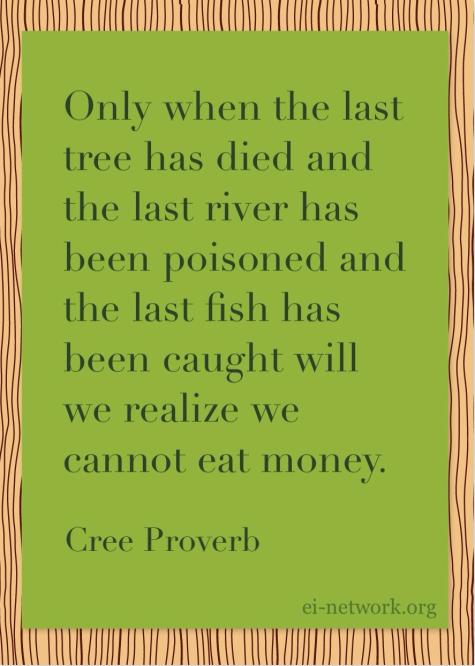
A Healthy Environment for a Better World
As we enter unprecedented times regarding climate, biodiversity, natural resources, and environmental instability, it has never been more important to stay informed and educated.
Corrupt governments and greedy multinational corporations want us to stay ignorant to the irreversible damage that they are inflicting on our natural world. Their inaction, apathy, and sluggishness to protect and restore our environment affects us all.
There is now more carbon dioxide in our atmosphere than at any other point in history. Wildlife populations have dropped by 60% in the last 40 years. Extreme temperatures are now killing 5 million people a year.
Events such as the UN Climate Change Conferences (COP) and the UN Biodiversity Summits have encouraged world leaders to unite and take long-term, meaningful action towards environmental protection. However, progress has so far been slow and is hampered by profit-hungry, destructive industries such as Big Oil.
There are reasons for hope - The landmark deal for biodiversity agreed at COP15 is an excellent start. The EU is implementing a carbon tariff on the most polluting imports. Short-haul flights and private jet use are being cracked down on. Plastic alternatives are gaining momentum and vital funding. The renewable energy transition is well underway.
“What humans do over the next 50 years will determine the fate of all life on the planet.” - David Attenborough
Author: Rachael Mellor 28.12.22 (Updated 14.04.25) licensed under CC BY-SA 4.0
For further reading on the Environment see below ⬇️
Info on Environment
- Environment NEWS[295]
- Environment in GENERAL[1418]
- Environment ORGANISATIONS by country[1178]
- WASTE & Toxins[1925]
- TRANSPORT & Air Pollution[2233]
- POLICY & Economy[210]
- Exemplary PEOPLE
Hot Topics
Twitter list
Tweets by @BetterWorldInfo/lists/climatechange
Featured Hero of the Month
Steven Donziger
Donziger has finally been released after almost 1,000 days of house arrest for his work in the 1990s when he represented around 30,000 indigenous farmers, in the Lago Agrio region of the Ecuadorian Amazon, in a lawsuit against Texaco, now Chevron. The accusation against the transnational was that it contaminated soil and water by dumping billions of gallons of toxic waste. In 2013, the lawsuit was won in Ecuadorian courts in a landmark case against the oil giant, but Chevron re-launched the case in New York, and in 2014, federal judge Lewis Kaplan placed Donziger under house arrest for "criminal contempt", where he spent 787 days. Donziger says Chevron's persecution should not intimidate other human rights advocates from seeking environmental justice.


Featured Resource of the Month
A clean alternative
RenewableEnergyWorld.com was started in 1999 by a group of renewable energy professionals who wanted to create a long term sustainable business, and they created perhaps the single most recognized and trusted source for Renewable Energy News and Information on the Internet.

